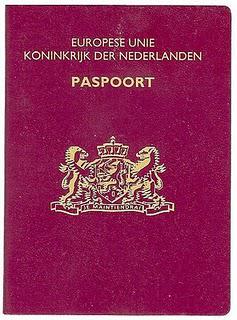This post was originally published in the November 2010 issue of The Holland Times. The Holland Times is a newspaper that reports Dutch news in English for the expat community. A monthly publication, The Holland Times can be picked up for free at various locations throughout Amsterdam, The Hague, and Rotterdam, or you can pay for a subscription and have it delivered to your home. For more information, check out the website.  Integration is an important step towards becoming a part of Dutch society. Under new policies, TIFFANY JANSEN reveals expats may have to invest more in living abroad.
Integration is an important step towards becoming a part of Dutch society. Under new policies, TIFFANY JANSEN reveals expats may have to invest more in living abroad.
After much hemming and hawing, the Netherlands finally has a new government. Made up of the VVD and CDA parties with support from Geert Wilders' PVV, the new Dutch cabinet released its regeerakoord in September, outlining plans to crack down hard on the country's relaxed immigration laws. Most notable are proposals for major cuts to government subsidies for integration and naturalization programs.
As it stands, all non-EU citizens coming to live in the Netherlands are required to take integration courses known as inburgerinscurses and pass either the inburgeringsexamen or the staatsexamen test. The focus is on language and social behavior education with the goal of helping migrants actively participate in daily Dutch life.
For years, inburgerings programs have been heavily funded by the government, with participants paying little to nothing. The new cabinet plans to change all of that.
According to the regeerakoord, migrants and assylum seekers coming to the Netherlands will be given five years to complete all naturalization requirements, must give up their nationality to become Dutch citizens, and will be expected to finance their integration and naturalization requirements themselves.
These changes will make inburgering more expensive and more difficult for those migrating to the Netherlands.
Quality cut
Already, government institutions are beginning to cut back on the naturalization programs they provide. Before the summer, letters went out to all inburgering students in Utrecht, informing them that the special activities once provided in addition to the classes, such as language internships and writing and speaking groups are no longer being offered throught Bureau Inburgering Utrecht.
A teacher at ROC Midden Nederland - one of the educational institutions offering inburgeringscursus - confesses that rumors are flying among school staff. Everything from shorter classes to fewer lessons per week have been speculated as a consequence of the budget cuts. The teacher wishes to remain anonymous.
The powers that be, however, are remaining mum. When a representative from the body responsible for inburgerings programs throughout the country, Dienst Uitvoering Onderwijs, was reached for comment, her only response was "until the law is passed, we have no information on this topic."
For the most part, those benefitting from the current inburgerings programs are quite happy with the results. Canadian Anne-Marie McDonagh says of the program: "I learned a lot and to learn the same at a private institution would have cost one-thousand euros or more."
She says being able to communicate with others in the Netherlands and learning about Dutch history and traditions are valuable aspects of the program.
Smarter spending
Generally, feedback from inburgerers indicates that the funding should not be slashed, but used more wisely.
Though they work together to offer the programs, schools and municipalities seem to have difficulty communicating with each other, giving inburgerers the sense that the right hand never quite knows what the left hand is doing.
Program start and end times are not always clear and in many municipalities, students are required to make it to the end of their contracts even if they are able to pass the required exams before it expires. "Too much money and energy go into re-inventing the wheel," stresses McDonagh.
In the end, if you are a non-EU citizen wishing to live in the Netherlands, taking the courses and passing the exams are requirements, no matter who pays for it.
"It's naïve to think you can live in a country and not be able to integrate or speak the language," says expat lawyer Christian Barth, who moved from the United States to the Netherlands with his wife ten years ago.
"The unhappiest expats are those who can't speak the language. They feel isolated," he continues. "And to really be able to integrate, you have to put some effort into it." The regeerakoord simply requires migrants to put more into the integration process monetarily.
That being said, Barth says the Dutch need to cut migrants some slack. "Many second and third generation Turkish and Moroccan migrants are here because the Dutch brought them here to fulfill a labor shortage.
While it is their responsibility to learn, it is the responsibility of the Dutch to help and be patient with them."
Pick up the November 2010 issue for Tiffany's article on higher taxation on art in the Netherlands.
Destinations Magazine
Author's Latest Articles
-
Good Night Irene
-
Comment on If You Ain’t Dutch, You Ain’t Much! by Tiffany
-
Comment on Expat’s Best Friend by RANDOM NOMAD: Turner Jansen, American Canine in Holland « The Displaced Nation
-
Comment on Driving Rant: Electronic Advisory Speed Signs During Rush Hour by Tiffany

